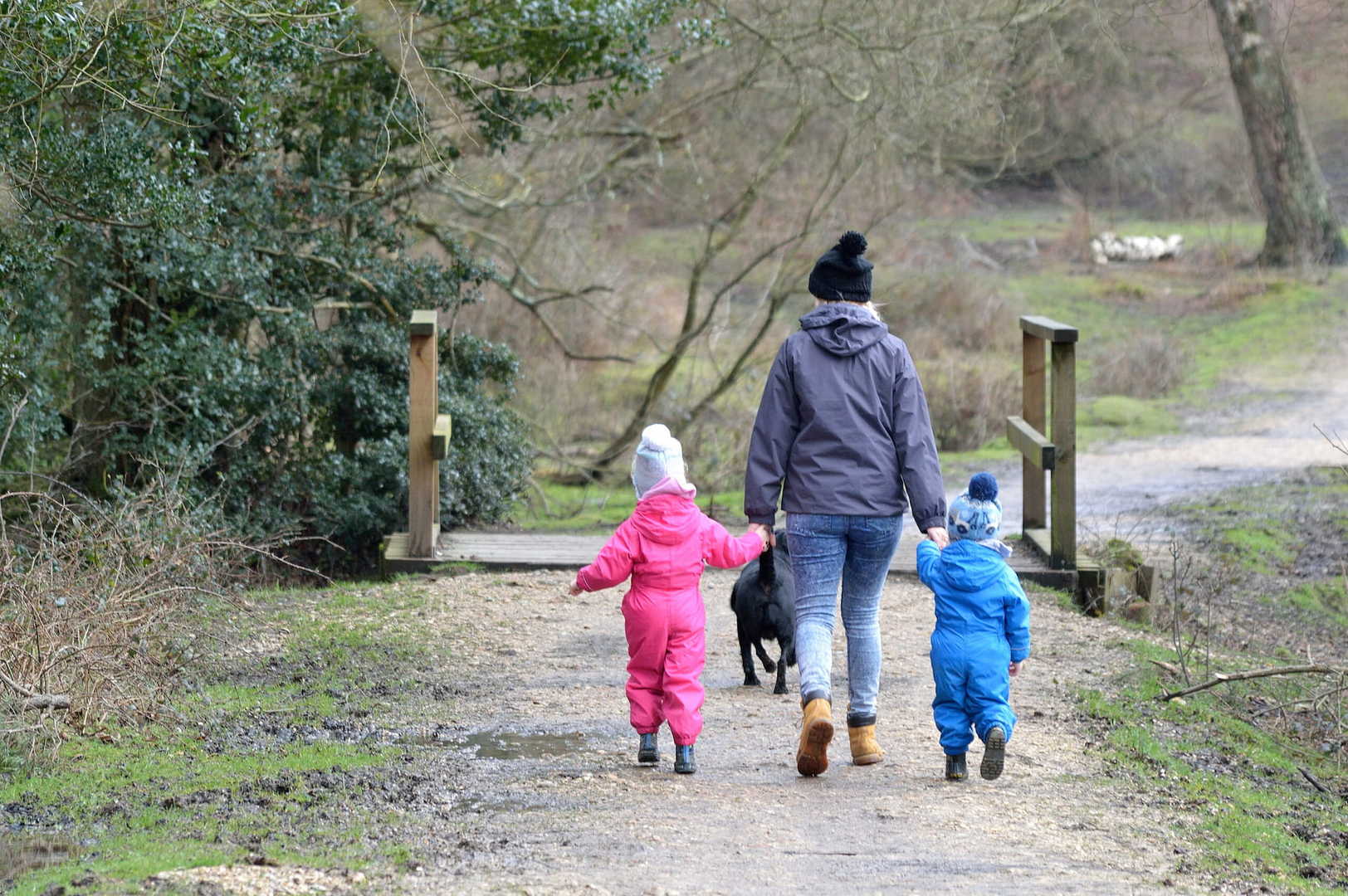So what are the benefits of being in nature, and why does it make us feel good?
1. Stress
Time spent in green spaces has a relaxing effect which reduces cortisol, the primary stress hormone, and lowers our heart rate and blood pressure. Taking only a 15 minute walk through the woods or other natural habitat on a daily basis is enough to make a significant difference to stress levels.
2. Emotional Wellbeing
Forest bathing has also been shown to help us handle our emotions and improve mental illnesses like depression and anxiety. The reduction in cortisol also plays a part here, however, being in nature also promotes a process known as ‘cognitive reappraisal’. This is a process in which in moments of peace, we reframe and reconsider our experiences in a more balanced, reasonable way. This more level-headed re-evaluation of things we are worrying or ruminating about, helps us stop catastrophising outcomes and feel more confident in ourselves.
3. Sleep
Spending more time out in the natural environment helps us sleep better. Greenspaces (and additionally, leisure gardening) promote longer and better quality sleep. When modern life so frequently demands early, coffee-fuelled, mornings and late, screen-staring, nights, it’s no wonder that there’s an epidemic of tiredness. Having a stable cycadean rhythm will in turn benefit your wider physical health, bolstering your immune system and cell metabolism. Getting out in nature when and where you can will help you feel more refreshed, and perhaps save you some money on caffeine too!
4. Cognitive function and attention
Frequently viewing beautiful natural environments assists with attention and cognitive function. Regular exposure to natural environments can have a restorative effect our attention and concentration, and people who live close to green spaces are likely to be quicker at completing cognitive tests than those who live further away from them. So simply living closer to nature helps your cognitive function.
5. Sociability
Increased exposure to greenspaces helps us be more sociable. It makes us likely to be more generous, agreeable and empathetic, helping us better understand and interact with others. Greater social awareness and having closer relationships with those we care about is something we should all strive for, to help us enjoy life more.
6. Physical wellbeing
Yes, this seems like an obvious one, but it’s worth saying anyway. Spending more time outdoors will improve your physical fitness, and particularly in children, playing in nature will help their development in hand-eye coordination and bone structure.
Healthy body, healthy mind, may be a bit of a cliché, but there is a wealth of science which supports the notion that our physical and mental health are intrinsically linked. Improving one, can also improve the other.
Summary
So there you go! Those are our 6 health and wellbeing benefits for spending more time in nature. But as a bonus 7th reason is… it’s just fun!
If you would like to spend more time getting outdoors into the natural world, then camping is a fantastic way to get that back-to-basics enjoyment of being surrounded by wildlife and beautiful landscapes.
We have 10 campsites around the New Forest, all with their own unique slice of the National Park’s natural beauty.
Some, like Holmsley and Hollands Wood, have full facilities if you want to stay out in nature but still have all of the modern conveniences, whilst others like Aldridge Hill will give you that isolated, wildcamping feel.
See them all on our campsites page, and book a visit to the one which speaks to you!
Bibliography:
Maund, P.R., Irvine, K.N., Reeves, J., Strong, E., Cromie, R., Dallimer, M. and Davies, Z.G., 2019. Wetlands for wellbeing: Piloting a nature-based health intervention for the management of anxiety and depression. International journal of environmental research and public health, 16(22), p.4413.
Ohly, H., White, M.P., Wheeler, B.W., Bethel, A., Ukoumunne, O.C., Nikolaou, V. and Garside, R., 2016. Attention Restoration Theory: A systematic review of the attention restoration potential of exposure to natural environments. Journal of Toxicology and Environmental Health, Part B, 19(7), pp.305-343.
Park, B.J., Tsunetsugu, Y., Kasetani, T., Kagawa, T. and Miyazaki, Y., 2010. The physiological effects of Shinrin-yoku (taking in the forest atmosphere or forest bathing): evidence from field experiments in 24 forests across Japan. Environmental health and preventive medicine, 15, pp.18-26.
Reddy, A.B. and O’Neill, J.S., 2010. Healthy clocks, healthy body, healthy mind. Trends in cell biology, 20(1), pp.36-44.
Shin, J.C., Parab, K.V., An, R. and Grigsby-Toussaint, D.S., 2020. Greenspace exposure and sleep: A systematic review. Environmental research, 182, p.109081.
Zhang, J.W., Piff, P.K., Iyer, R., Koleva, S. and Keltner, D., 2014. An occasion for unselfing: Beautiful nature leads to prosociality. Journal of environmental psychology, 37, pp.61-72.
Zijlema, W.L., Triguero-Mas, M., Smith, G., Cirach, M., Martinez, D., Dadvand, P., Gascon, M., Jones, M., Gidlow, C., Hurst, G. and Masterson, D., 2017. The relationship between natural outdoor environments and cognitive functioning and its mediators. Environmental research, 155, pp.268-275.



